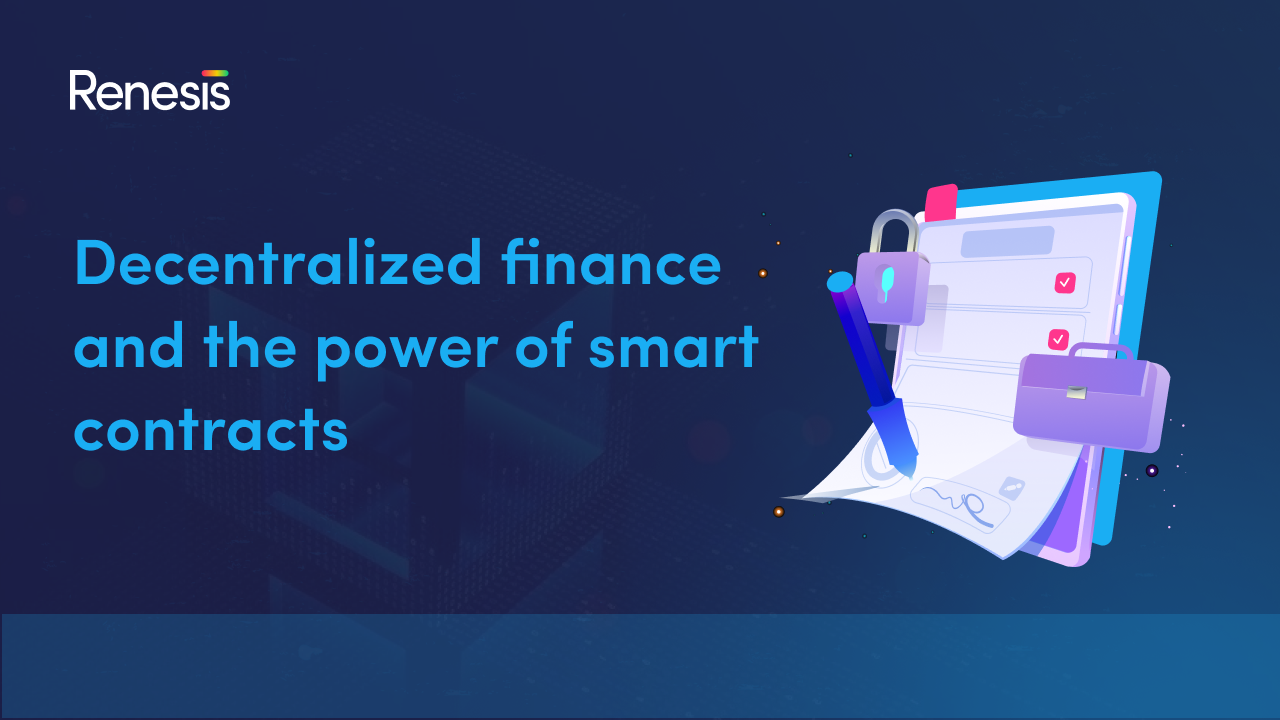Decentralized Finance and the Power of Smart Contracts
Decentralized finance and smart contracts are two buzzwords that have given tech enthusiasts a lot to talk about for a long time now. Blockchain technology has the potential to disrupt the financial industry on a global scale.
In the 1990s, digital agreements became popular. People may feel robbed, however, when these services or digital agreements are breached under certain circumstances. This blog post will make your head spin with a lot of information about decentralized finance and the power of smart contracts.
Read on if you’re interested in decentralized finance and blockchain development.
What is Decentralized Finance?
Decentralized finance is changing the world of finance, but it’s also changing the way people work. Decentralization means that financial transactions are not controlled by a group of third party institutions. This means fewer fees, better security, and greater financial freedom for users. The first step to decentralizing finance was smart contracts. It is a digital tool that enables automated interactions between parties or assets without a third-party intermediary.
Smart Contracts allow users to use if-then rules programmatically without interacting with a third party.
The Foundation of Decentralized Finance
Decentralized finance is a concept that has evolved over the years. It started as an idea to create an alternative financial system that would be more equitable and democratic, with no central authority or third party involved.
Decentralization is one of the foundations of this new way of doing business. It’s no wonder, then, that the technology behind decentralized finance has captured the attention of many cryptocurrency enthusiasts. As this technology matures, it will provide an opportunity for unprecedented levels of transparency and inclusion.
Smart contracts are one of the technologies making decentralized finance possible today. These are self-executing contracts that run on blockchain platforms which have made it possible for people to buy and sell things without having to rely on third parties.
For example, imagine that you want to buy a car from someone else but you don’t want to deal with the hassle of paying for it in cash or handing over your credit card information. With decentralized finance, you can create a smart contract that automatically pays for your purchase using funds from a third party (the seller).
Decentralized vs. Centralized Finance
In contrast to decentralized finance (Defi), centralized finance (CeFi) relies on a centralized entity to regulate transactions. In CeFi, the price of shares is determined by the market value of shares listed on exchanges. Whereas Defi uses blockchain technology. With this, users of Defi can access different emerging financial products and services, such as non-fungible tokens and decentralized applications (dApps).
Due to the fact that these exchanges are responsible for safeguarding the funds, users can shift their risk to these exchanges. By removing these intermediaries, DeFi removes the need for them. Users place their trust in smart contracts and the security that blockchains provide.
Blockchain and the Smart Contract Platform
As a distributed ledger, the blockchain is not just a database. It’s a technology that can be used to build all types of applications, including decentralized applications (dApps).
DApps are applications that run on top of blockchains, and they allow for the execution of smart contracts. Smart contracts are computer protocols that facilitate, verify, or enforce the negotiation or performance of a contract, or that make one or more contractual clauses effectively inoperative if certain conditions are met.
Smart contract platforms like Ethereum allow developers to build decentralized applications (dApps) on top of their blockchain. How about building your dapp on the Ethereum blockchain? You can rely on Renesis Tech experts for help if so! Book a free consultation today!










